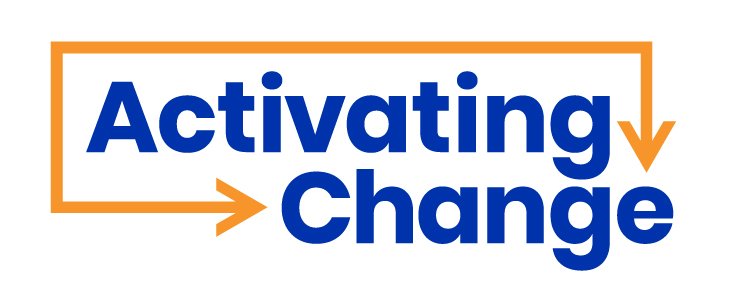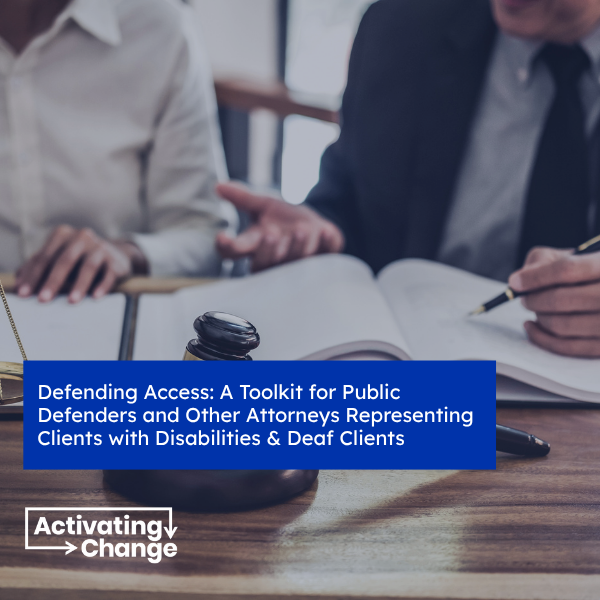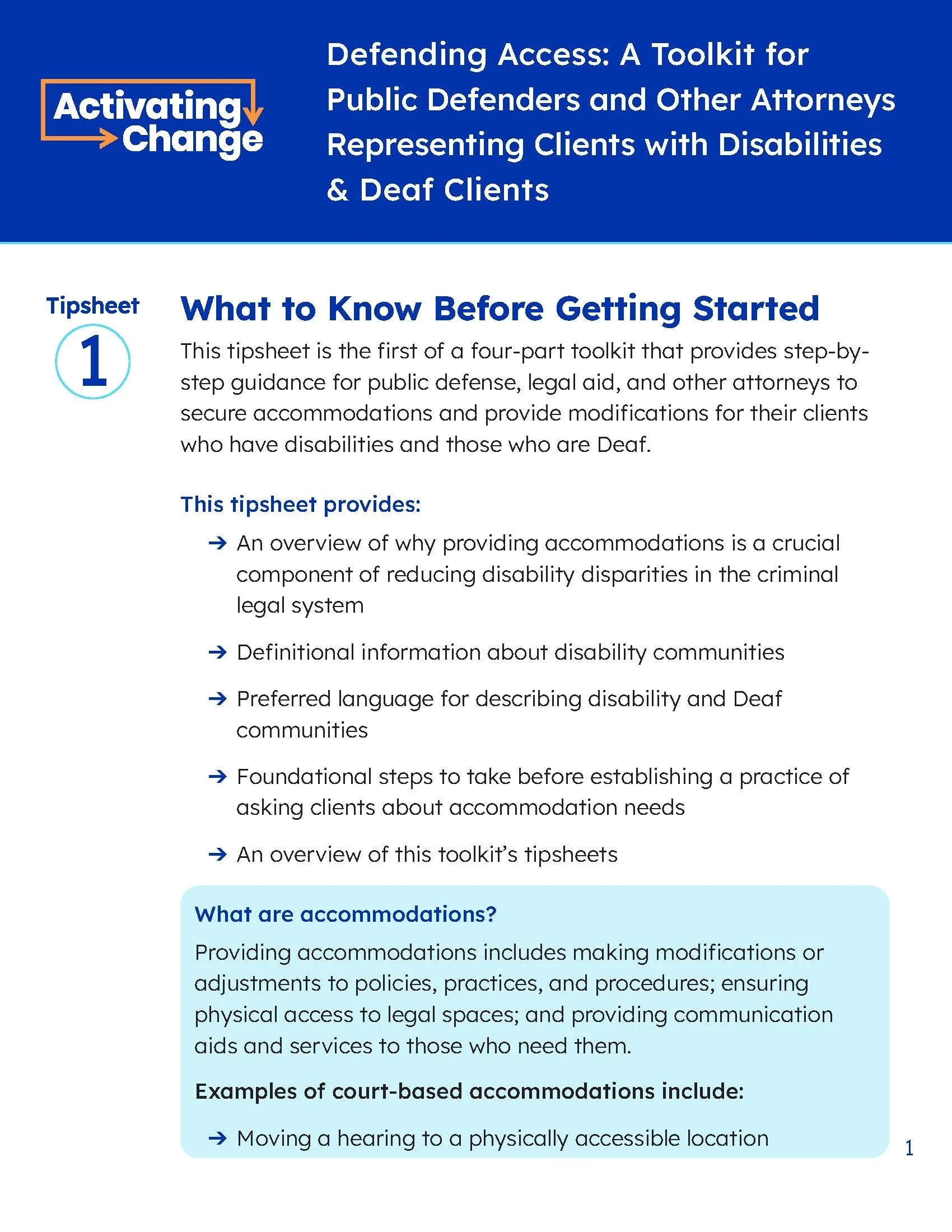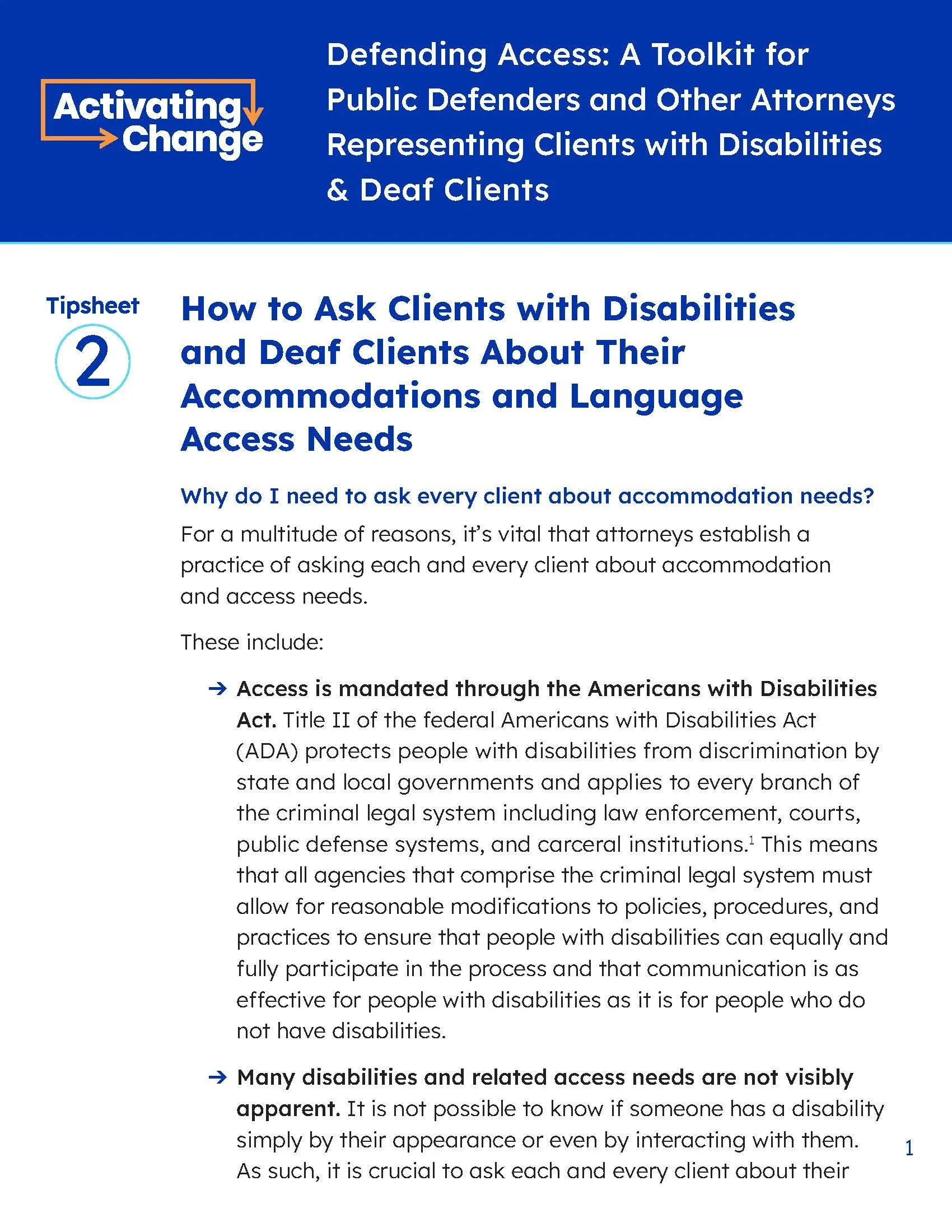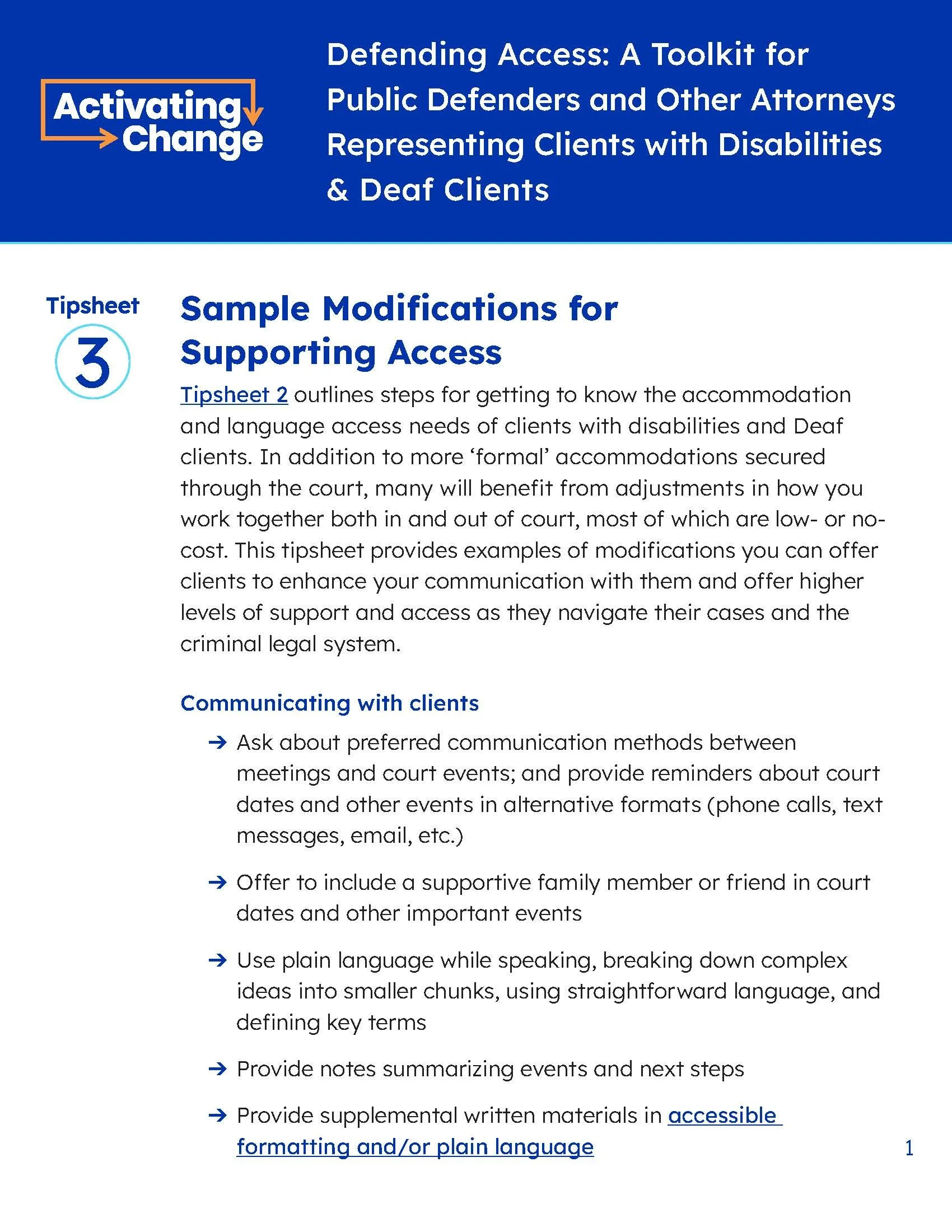Defending Access: A Toolkit for Public Defenders and Other Attorneys Representing Clients with Disabilities & Deaf Clients
This four-piece toolkit provides a step-by-step process for public defense, legal aid, and other attorneys to secure accommodations and provide modifications for their clients who have disabilities and those who are Deaf.
What’s Inside
Tipsheet 2
How to Ask Clients about their Accommodations and Language Access Needs
This tipsheet starts with an overview of why it is essential that attorneys ask every client about their access needs and outlines a three-step process for securing accommodations in court settings.
Tipsheet 1
What to Know Before Getting Started
This tipsheet provides foundational information on disability and Deaf communities, as well as steps attorneys should take prior to establishing a practice of asking clients about their accommodation needs.
Quick Reference Guide
For ease of reference, this tipsheet offers a summary of Tipsheet 2 and Tipsheet 3.
Tipsheet 3
Sample Modifications for Supporting Access and Communication
This resource provides examples of modifications that attorneys can offer at different points of the criminal legal process to improve communication and outcomes for clients with disabilities. Not an exhaustive list, these examples can be adapted depending on your office’s resources and your clients’ needs.
